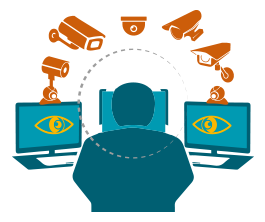Intrusive surveillance technologies
Dissemination and use of intrusive surveillance technologies

Technological progress in the last few decades have made monitoring, tracking and profiling techniques easier, cheaper and more accurate. As a result, surveillance has increased in both the public sector (for law enforcement purposes and public security for example) and in the private sector (for targeted advertising for example). These practices can profoundly affect how individuals think and act, as well as other personal rights (such as freedom of expression or association). Any form of surveillance is an intrusion on the fundamental rights to the protection of personal data and to the right to privacy. It must be provided for by law and be necessary and proportionate.
Dissemination and use of intrusive surveillance technologies
Meeting the challenges of big data, A call for transparency, user control, data protection by design and accountability
Speech given by Giovanni Buttarelli at the Vienna Parliamentary Forum on Intelligence-Security, Vienna
Opinion on a notification for prior checking received from the Data Protection Officer of the European Central Bank (ECB) regarding the prudential supervisory processes to be established as part of the Single Supervisory Mechanism (Case 2014-0888)
Article written by Peter Hustinx and published in TELOS, Revista de Pensamiento sobre Comunicación, Tecnologia y Sociedad, February-May 2014.